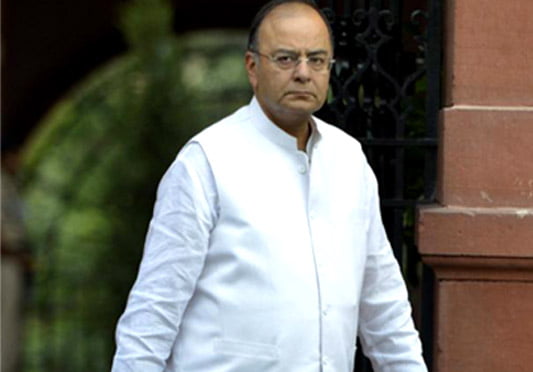#BudgetScan: Key Reform Measures in Finance Minister Arun Jaitley’s Budget speech 2016-17

Tax Policy Council – Finance Minister – Taxscan
Tax Policy Council – Finance Minister – Taxscan
1. The Government is firm on its course towards fiscal consolidation without compromising on its development agenda. 3.5% fiscal deficit is targeted for FY 2017. 2. Total allocation for Agriculture, Farmers’ welfare and Irrigation set at Rs. 47,912 cr, which is nearly twice the allocation of the previous year. 3. New Health Protection scheme will provide health cover up to Rs. 1 lakh per family and additional Rs. 30,000 for senior citizens. 4. Free LPG connections will be provided in the name of woman member of a family to 1.5 cr BPL households in 2016-17 and to continue for two more years to cover 5 cr households in total. 5. Massive increase in public spending on infrastructure to Rs. 2.21 lakh cr, an increase of 22.5% over the previous year. 6. Higher Education Financing Authority set up, with an initial capital base of Rs. 1,000 cr to promote higher education. In addition, 10 public and 10 private institutions to emerge as world-class Teaching and Research Institutions. 7. Promoting a tax-friendly regime and minimizing hassles due to litigation through a New Dispute Resolution Scheme with low or zero penalties. Ongoing tax cases can be settled with ease. 8. Increased relief for middle-class tax-payers by raising the ceiling of tax rebate under Section 87A to Rs. 5,000 for individuals with income less than Rs. 5 lakhs and by raising the limit of deduction of rent paid under section 80GG to Rs. 60,000. 9. Directly providing financial and other subsidies benefits to people who deserve them by enacting a new law and developing a social security platform using Aadhar. 10. Boosting formal sector employment by provisioning Rs. 1,000 cr towards contributing 8.33% on behalf of all new employees enrolling in EPFO for the first three years of their employment. 11. Simplified and pro-market tax measures such as laying out the roadmap of phasing out of exemptions under Corporate Taxes, abolishing small cesses, providing complete pass through of income-tax to securitization trusts and reducing period of obtaining long-term capital gains treatment for unlisted companies to three years. 12. Promoting entrepreneurship by increasing the turnover limit under Presumptive taxation scheme to Rs. 2 cr, targeting to disburse loans worth Rs. 1.8 lakh cr under PM Mudra Yojana and providing 100% deduction of profits for 3 out of 5 years for start-ups. 13. Facilitating Affordable Housing by 100% tax exemption for profits from small projects, not subjecting distribution REITs and INVITs to Dividend Distribution Tax and encouraging small first-time home buyers by deducting ¬additional interest of Rs. 50,000. 14. Reducing black money through a scheme to declare undisclosed income by paying 45% tax in a given compliance window. 15. Strengthening the financial sector by allocating Rs. 25,000 cr towards recapitalising Public Sector Banks (PSBs), listing Government-owned General Insurance companies, and spelling out a roadmap for consolidating PSBs.


